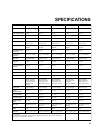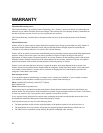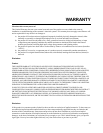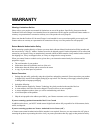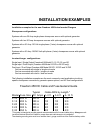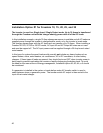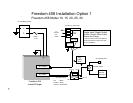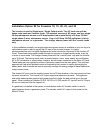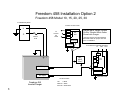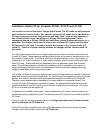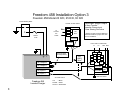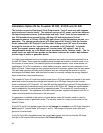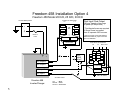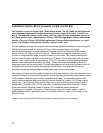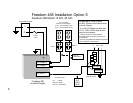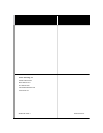
46
Installation Option #4 for Freedom 20 D/D, 25 D/D and 30 D/D
The inverter is used in Dual Input / Dual Output mode. The AC loads are split between
main loads and ‘inverter loads’. The external sources of AC power can be two different
30 Amp shorepower sources (both neutrals and both “Hots” must be kept separate) or
two 30 A breakers from a panel fed by a 50 Amp 120 Volt single phase (3 wire)
shorepower source, a 50 Amp 120/240 Volt split phase (4 wire) shorepower source, or a
generator. The charger power shares a 30 Amp source (AC input 1) with the ‘inverter
loads’ connected to AC Output #1 and the other 30 Amp source (AC input 2) transfers
through the inverter to the ‘inverter loads’ connected to AC Output #2. In inverter
mode, the inverter powers both groups of ‘inverter loads’ (AC output 1 and 2). In
charge/transfer mode, up to 60 Amps can be transferred to the ‘inverter loads’. The ‘in-
verter loads’ are split into two groups so that these loads can be used to help balance
the two legs of shore or generator power.
It is highly recommended that only the lighter appliance and outlet circuits be connected to the
Inverter AC Panel. These loads are supplied power through the inverter in transfer mode, or by
the inverter in invert mode. The heavier loads such as space heaters, stove, water heater, air
conditioners, AC to DC converters, or other battery chargers, should remain connected to the
Main AC Panel. These loads are only supplied by shore or generator power from the main panel.
This split load approach will help avoid problems such as overloading the inverter or rapidly
discharging the battery bank, and eliminate the need to manually manage the energy usage of
these loads when using inverter power.
The inverter AC Input #1 must be supplied power from a 30 Amp breaker and neutral in the main
panel and is used to power the charger and transfer up to 30 Amps through to the ‘inverter
loads’ connected to AC Output #1. AC Input #2 must be supplied by a second 30 Amp breaker in
the main panel which transfers through the inverter to AC Output #2. These two input breakers
can be supplied by the same phase or by opposite phases. The inverter AC outputs supply a
separate sub panel. The appliance and outlet loads are then supplied with power from the in-
verter hot and inverter neutral buses in the sub panel.
If a generator is installed in the system, a break-before-make AC transfer switch is used to
select between shore or generator power. The transfer switch AC output is then routed to the
Main AC Panel.
If only AC Input #1 is supplied power, the unit will charge and transfer up to 30 Amps through to
both groups of ‘inverter loads’ (AC output 1 and 2). The charger will power share with both
groups of ‘inverter loads’.
If only AC Input #2 is supplied power, the unit will not charge, and will only transfer 30 Amps
through to the inverter loads connected to AC Output #2 only.



